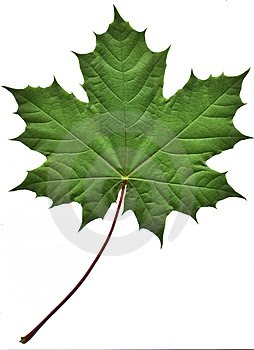In an insightful article on Ghana Web January 8, 2011, Otchere Darko asks Why Should Lands And Houses In Ghana Be Sold rather than leased, and Ghanaians at home and abroad should pay careful attention to this issue. Having most new properties under leasehold creates the potential for abuse and at minimum gives birth to unnecessary paperwork and legal costs. One way the Mills government can deal with this issue is to offer expedited building permits for freehold projects, plus additional incentives. It is important that the majority of homeowners and businesspeople own the land under their homes, shops and factories, for if the situation is otherwise it can lead to an unhealthy concentration of economic and political power.
Ethiopia has been going down a similar path, with 99 year leases provided by the government, a policy which traces to the communistic origins of the freedom fighters that overthrew the Dergue (Shadow). From the evidence presented in Darko's article, it seems the long claw of government in Ghana also reaches places where it is unneeded and unwanted:
One of the reasons for the prevalence in Ghana of selling land by leasing, instead of by freehold conveyance, is often attributed to the phenomenon of “stool lands”, which are deemed by most customary laws and practices across the country to be “not saleable”. In the past, stool lands have usually been given freely to businesses and institutions by chiefs for reasons of “promotion of development” within their communities. In other cases, chiefs have given out stool lands on rental basis for non-residential users...... by whom rents, agreed in cash or kind, were paid to the stools concerned. Stool lands have also been, and continue to be acquired from chiefs by the Government for public use purposes..... for which the stools concerned got paid some revenues through appropriate avenues. Stool lands in the past were also given by chiefs to private people for “settlement purposes”, for which the appropriate customary law “considerations” were demanded to serve as “seals” for such stool land appropriation for private use. In the community where I come from, lands that did not form part of “stool lands” were either owned collectively by families, as “family lands”; or owned individually by individuals, as “personally-owned lands”. Family lands could only be sold in the past with the consent of all the clan heads whose “family lines” pooled collectively to own such lands. Personally-owned lands could be sold by the people who owned them, with or without notifying family members. Today, things have not changed much in the community where I come from, except that all lands “sold” and “indentured” by chiefs, families, or individuals have to be registered with, and leased by the Regional Lands Commissioner on behalf of the Government of Ghana...... which is said to be the historical owner of every land in the community where I come from, by virtue of a colonial proclamation made during the colonial era. This makes buying of land in my community even more complicated than elsewhere in Ghana, because of this seeming “double ownership”. *The described general trend of buying land as “leasehold only” virtually cuts across the whole country from north to south, and east to west. Why should it be so? Why can’t Ghanaians buy pieces of land or residential houses outright as freeholds?
These "national land ownership" policies are major impediments to significant international investment, and even prevent many Ghanaians and Ethiopians from investing in their properties, communities, regions and nations. When the government or business has too much power, the people suffer, and one way to combat this is with a strong, healthy and productive workforce. The basis for such health includes a solid component of blue collar homeowners, and Ghana (and Ethiopia) would do well to ensure that buying land, or a home including the land underneath, is an option available to families throughout the nation.
Popular Posts
-
Keta Ghana Fruit Stand - Photo by Peter Schnurman A friend once told me that India has over 600 varieties of Mango, which must make mango se...
-
Vibrant, warm and festive, Ghana represents a beacon of hope for Africa and the world. Here are some images from Googoliath: USA President B...
-
Pics of Hotties in Bikinis Alrighty lads and lasses, I'm off for a 5-day vacay to beautiful Orillia, Ontario, to celebrate my Mom's ...
-
Ghana Actresses Models Singers Goddesses Here are some of the most gorgeous, sexiest, and stunningly beautiful ladies in Ghana and women abr...
-
Portrait of An African Princess, by Floris Jespers Queen Kiya of Ancient Egypt African Queen - Photo by Nana Kofi Acquah Goddess Mawu and th...
-
West African Black Beauty extraordinaire!!! Here are some images of the stunningly beautiful Miss Universe Ghana 2010, the wondrous woman Kr...
-
Divine Ghana Actresses Models Singers Goddesses Dayan Kodua Billie-Richael Kwayie Awai Amidu! Bernice Thia MORE Divine Ghana Actresses Model...
-
Ghana recording artist Becca Ghana Culture Music Politics Art Life Here are a few stories making the headlines around Accra, Tamale and Kuma...
-
Talented and gorgeous Serena Williams, seen in silhouette Ten of the World's Ultra-Beautiful Ladies, presented alphabetically These ten ...
-
Sports Illustrated Swimsuit Edition models Damaris Lewis, Alyssa Miller and Kenza Fourati Glorious Damaris Lewis featured in Sports Illustra...
Ghana Rising
Wonders of Jamaica
African Music - The Blog of Samite
Green Mutual Fund Investing Info
Accra Conscious Forever blog
GhanaShowbiz.com
Elginism
GhanaToGhana | Ghana News Sports Infotainment
Subscribe to:
Post Comments (Atom)
Green Energy Stocks Search

Custom Search
GhanaSoccernet.com - Ghana Black Stars news
Green Maple Leaf

Canada Honours Nature














No comments:
Post a Comment